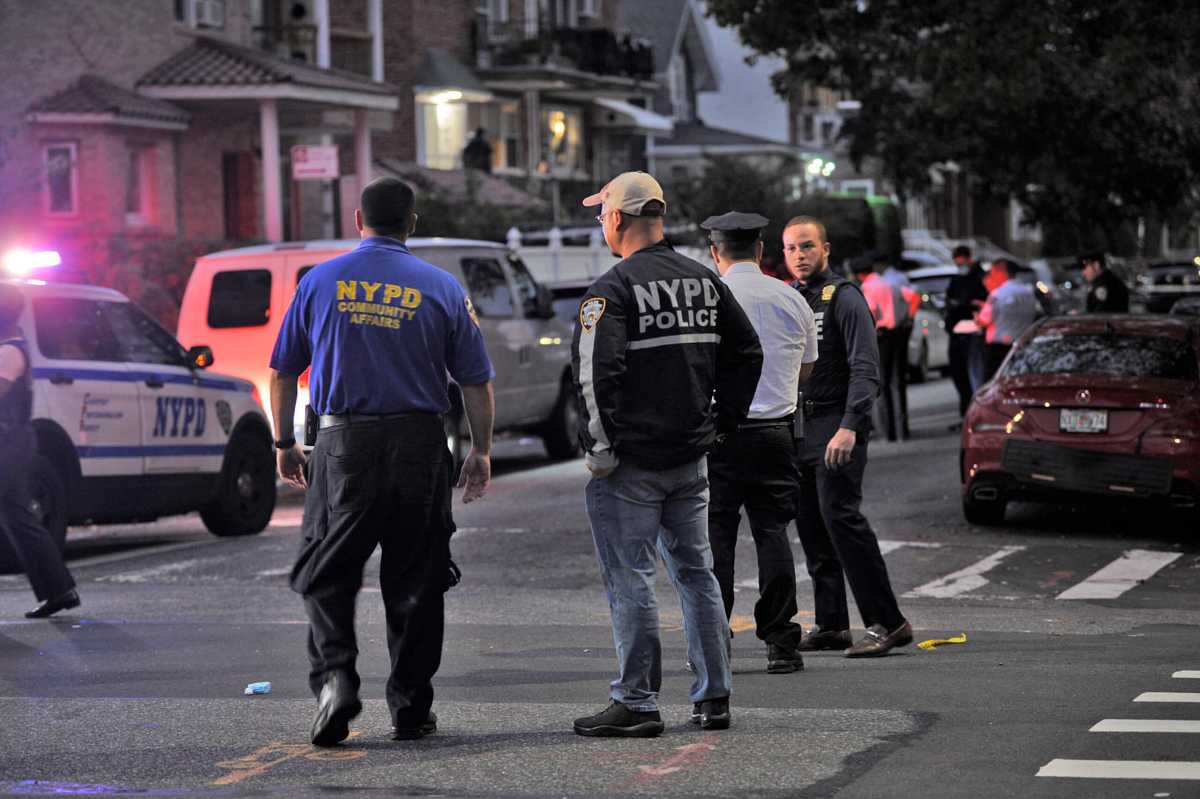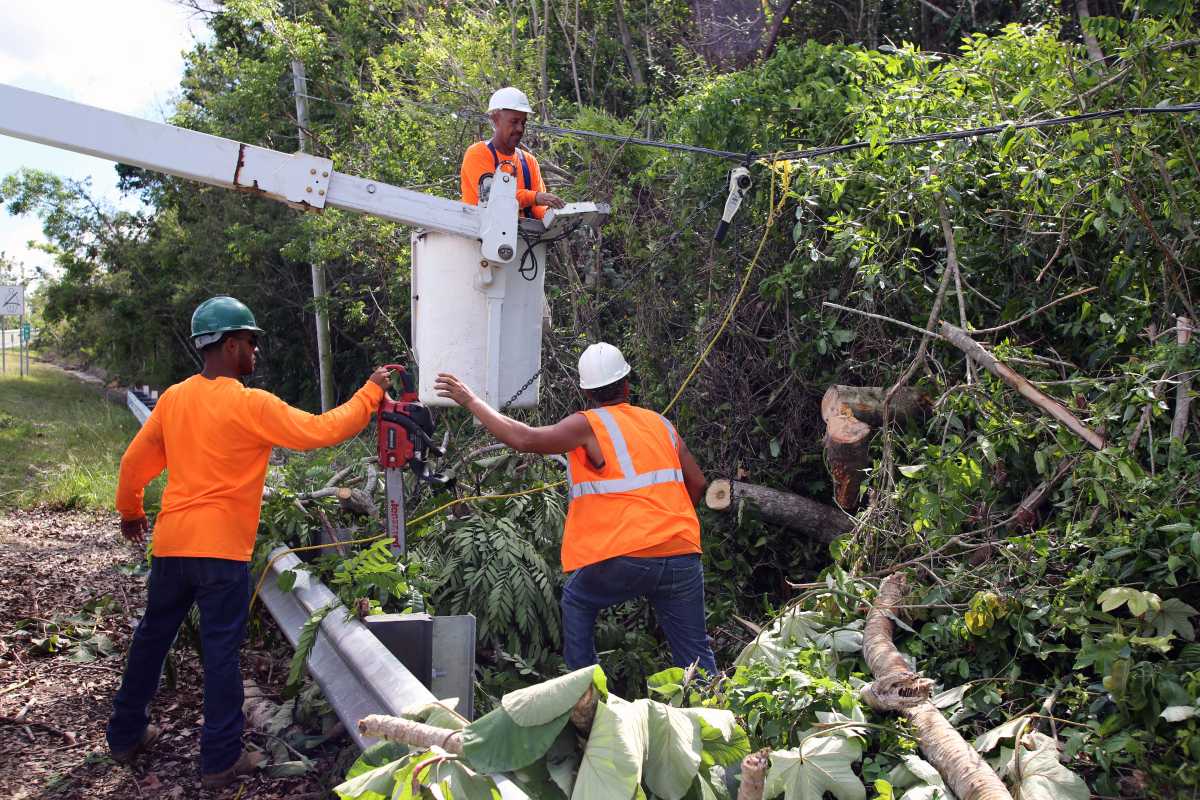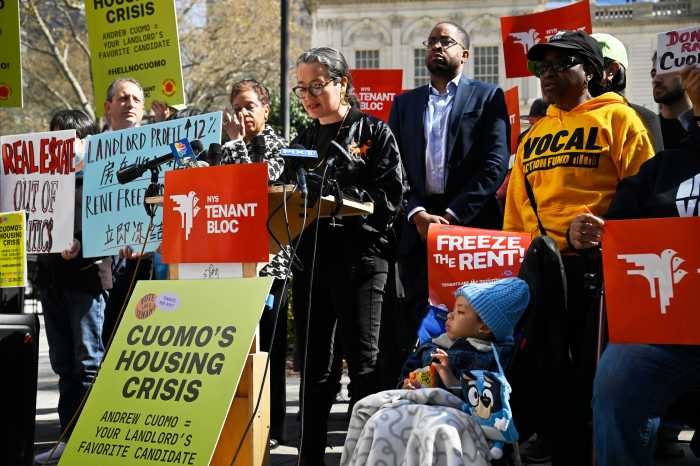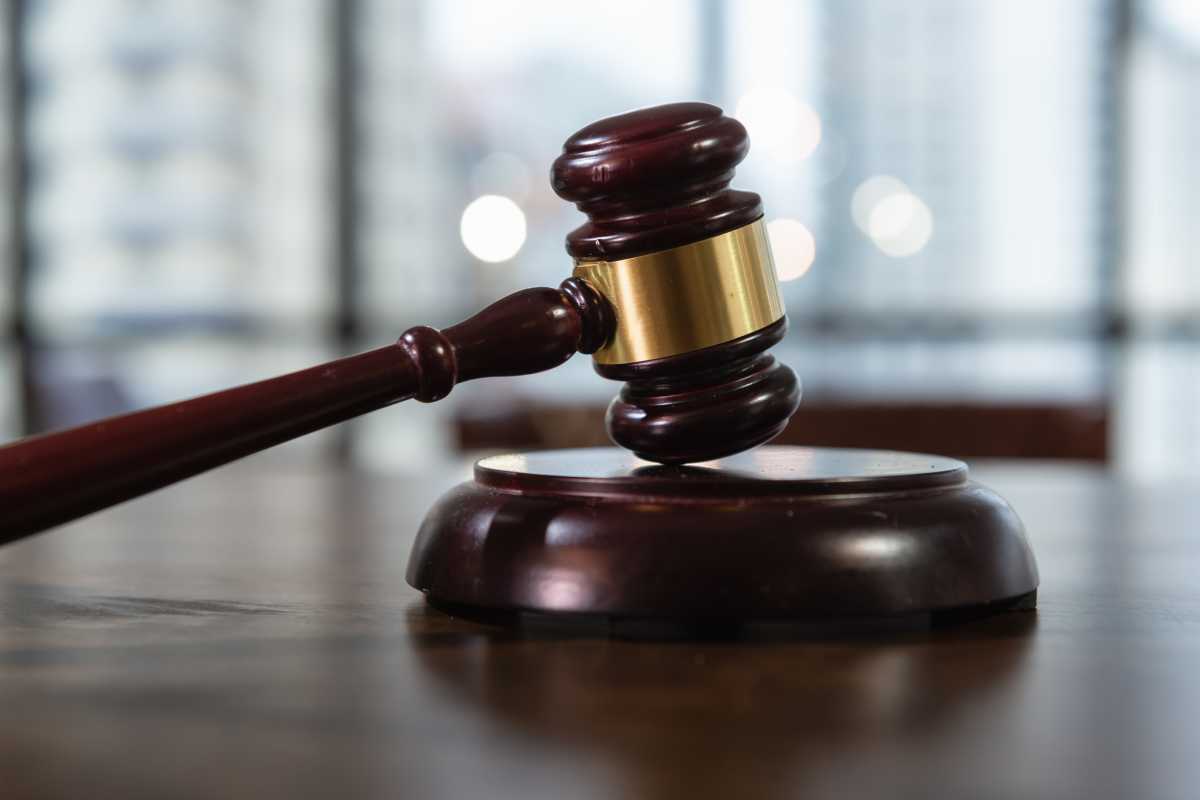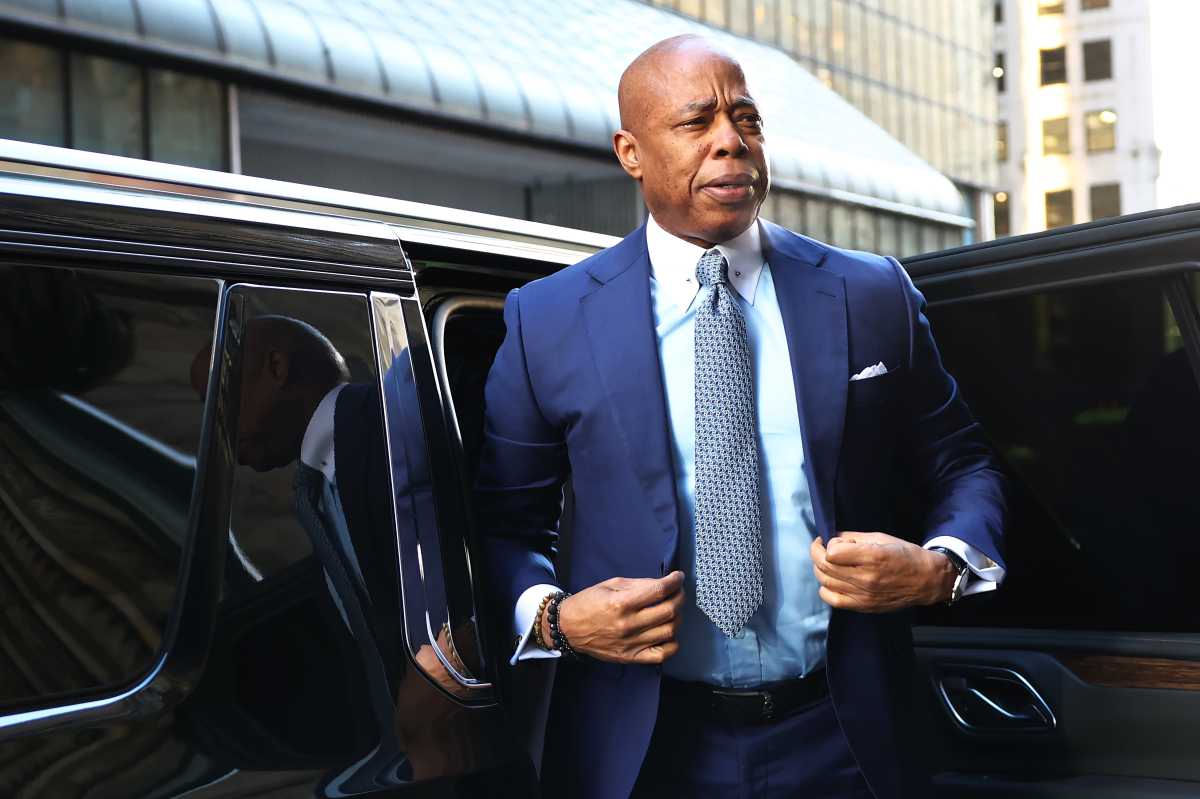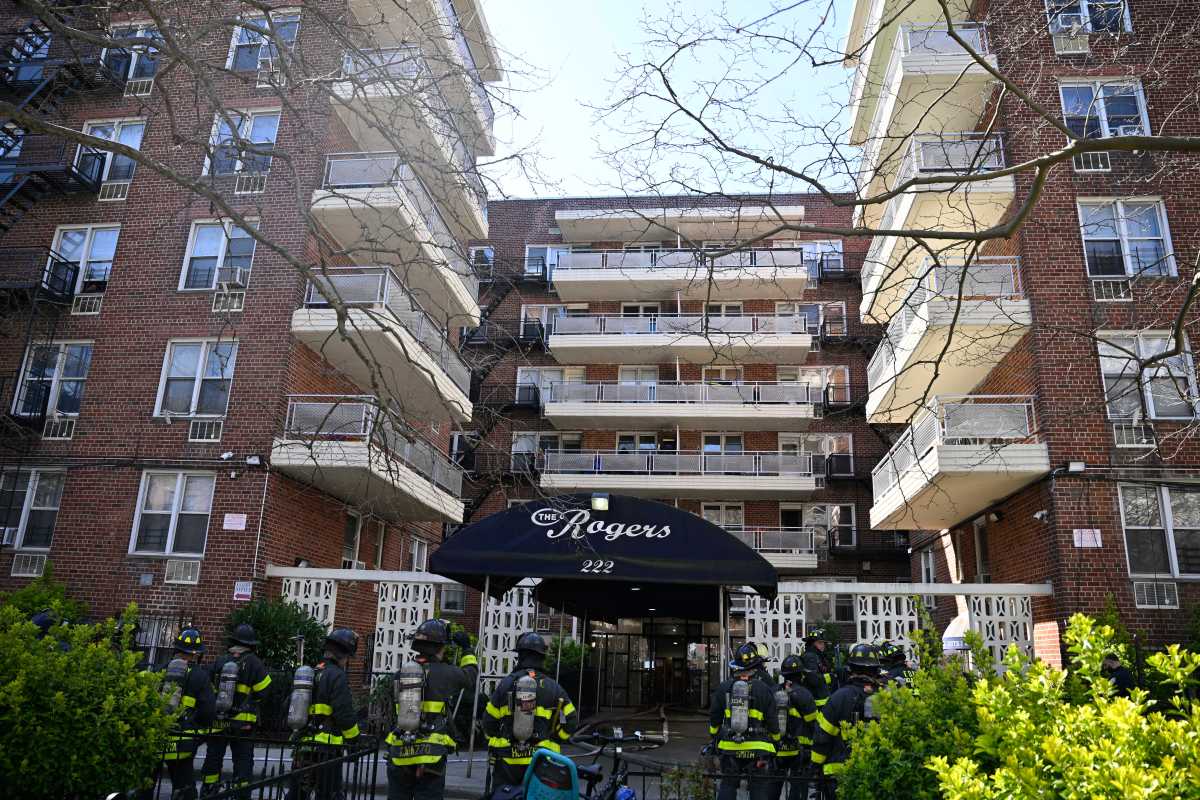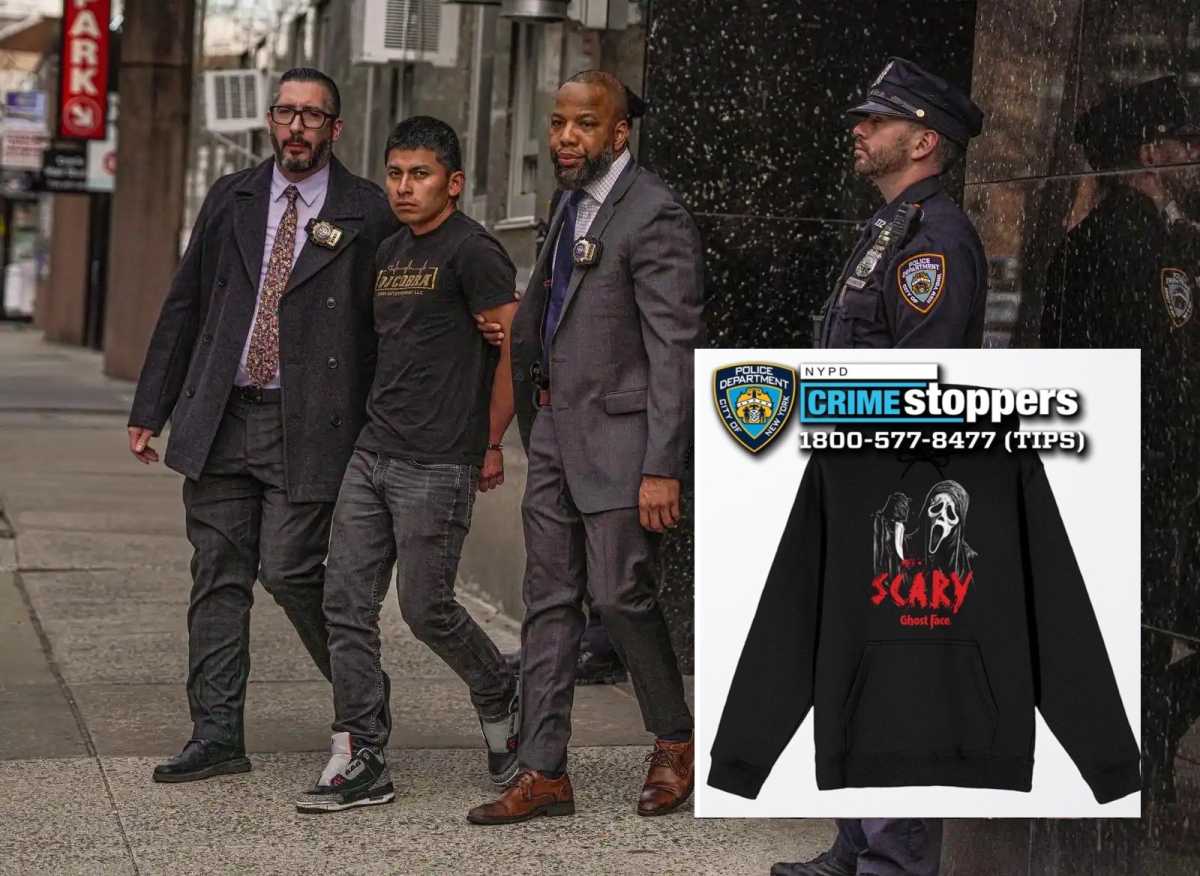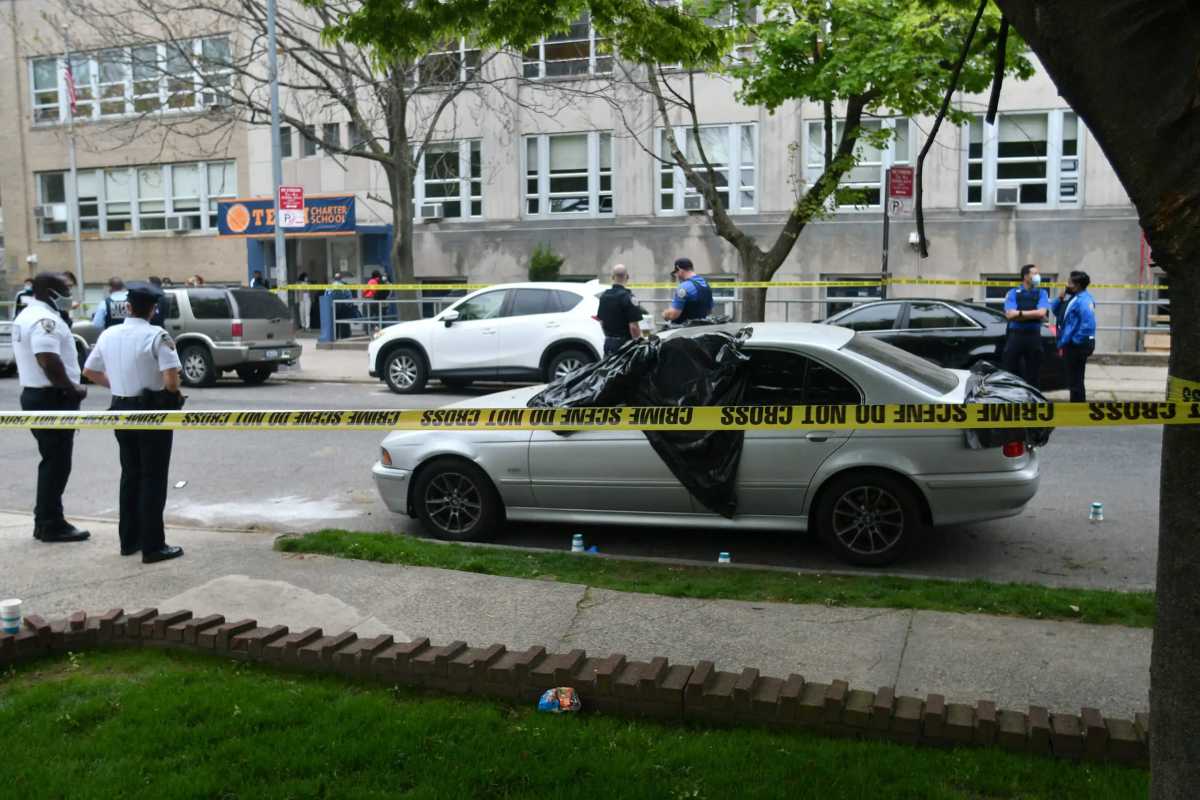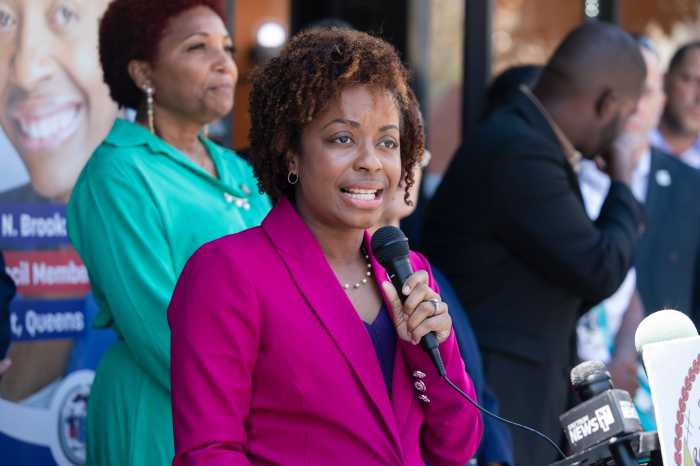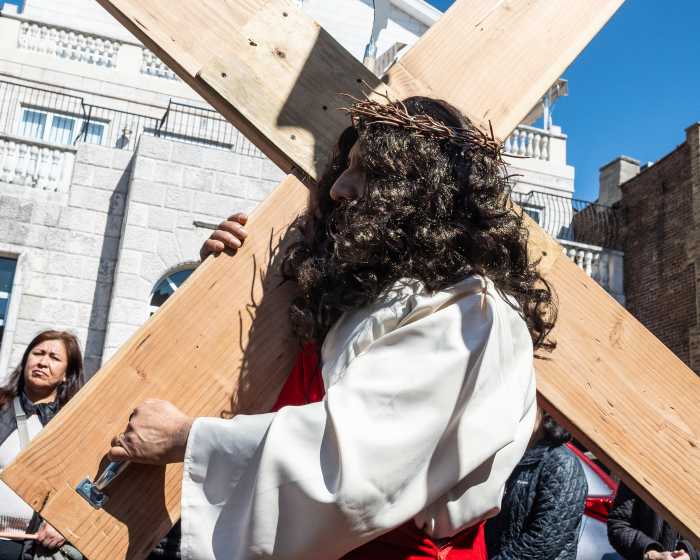Crime in New York City is out of control, as Republican gubernatorial candidate Lee Zeldin and other right-wing candidates often claim in television ads and press conferences ahead of the 2022 midterm elections. But the Big Apple isn’t exactly falling into chaos — and the NYPD’s own statistics tell that story.
While overall crime has increased year-over-year in New York City last year and so far this year, the NYPD’s historical CompStat figures show that the Five Boroughs are still far safer now than they were back in 2000 — when Republicans held both Gracie Mansion and the Governor’s Mansion.
Last year, the NYPD reported a total of 102,741 major felonies (murder, rape, robbery, felony assault, burglary, grand larceny and auto theft). That’s up from the 95,593 felonies reported during the pandemic year of 2020, and the highest total since 2016, when the NYPD tallied 101,716 felonies.
But turn the clock back to 2000, and the NYPD catalogued that year 184,852 major felonies. Despite terrorist attacks, recessions, a pandemic and other societal issues in the previous 21 years, crime in New York City was down 44.4% in 2021 from the 2000 totals.
In fact, 2000 was the high-water mark for every single major crime category but one over the past 21 years.

Back in 2000 — when Rudy Giuliani held court at City Hall and George Pataki was in his second term as governor — the city saw 673 homicides. That’s 27.5% higher than the 488 murders the NYPD tallied in 2021, which marked only the third time since 2012 that the city recorded more than 400 homicides in a single year.
Robberies were up significantly in 2021, with 13,831 such crimes reported, a 5.5% increase from 2020. But the robbery total of 2021 represents a 57.5% decrease from the 32,562 robberies that the NYPD tallied in 2000.
Another property crime, burglaries, are still way below the numbers tallied in 2000. That year, the NYPD tallied 38,352 break-ins; in 2021, that number was just 12,811, or about 33.4% of the 2000 burglary total.
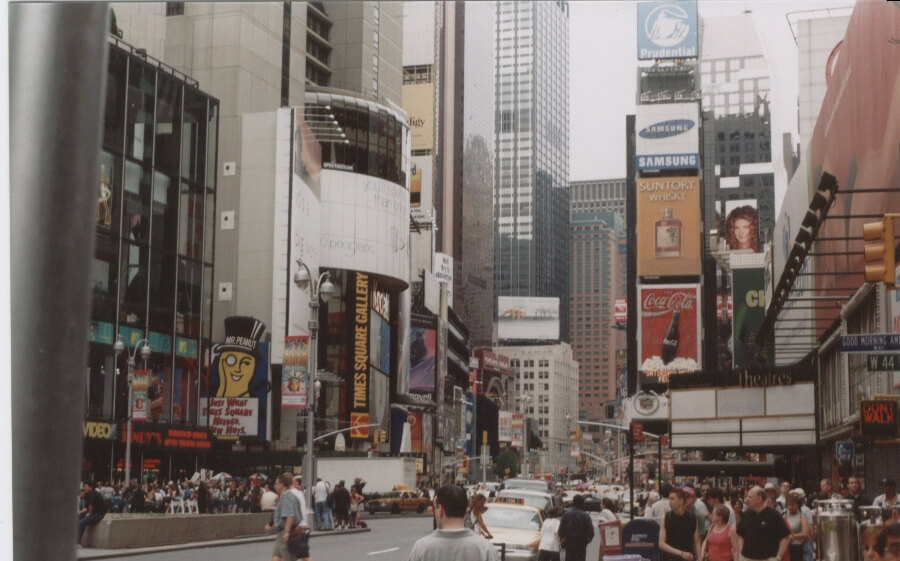
Last year, the NYPD reported 10,415 auto thefts — which was the highest number of such incidents it had seen since 2010, when 10,329 stolen cars tallied. But in 2000, the NYPD logged 35,442 auto thefts — about 3.4 times the number of stolen vehicles logged in 2021.
Felony assaults (22,835 in 2021 compared to 25,924 in 2000) and grand larcenies (40,870 in 2021 compared to 49,631 in 2000) are also down over the past two decades. Rapes — a consistently underreported crime, as the NYPD cautions — are also lower than they were nearly 20 years ago; 1,491 rapes were recorded in 2021, down from the 21-year high of 2,070 tallied in 2003.
Declines despite change
But 2000 was a generation ago. How did crime in NYC fare in 2021 compared to just a decade earlier? The answer: Still better.

Although 2021 saw the highest totals in murders (486), felony assaults (22,835) and auto thefts (10,415) over the previous 10 years, 2021 still saw declines in rape (1,491, down 16.9% from 2019); robbery (13,831, down 31.3% from 2012); burglary (12,811, down 33.2% from 2012); and grand larceny (40,870, down 9.9% from 2013).
And the total number of major crimes reported in 2021 (102,741) is down 7.7% from the 111,335 major crimes recorded in 2013 — the last year of the Bloomberg administration.
It’s worth mentioning that 2021 crime totals were still lower than they were between 2000 and 2013 — a period in which the controversial broken windows theory and the unconstitutional stop-and-frisk policy were still in place at the NYPD.
New York’s Finest also has steadily been reduced in size over the past two decades through attrition and periodic cuts, down from 40,000 officers in 2000 to about 34,000 officers today.
Nevertheless, the NYPD reported fewer than 100,000 major crimes — and fewer than 320 murders — in each of the three years immediately preceding the COVID-19 pandemic, between 2017 and 2019. Democrats Bill de Blasio and Andrew Cuomo were in charge at City Hall and in Albany, respectively, during that period.
Today, with crime continuing to rise, Mayor Eric Adams and Governor Kathy Hochul have moved ahead with various programs to combat the uptick — from establishing Neighborhood Safety Teams to tackle gun violence; to boosting police presence in the subways; to establishing “gun-free zones” in Times Square and elsewhere after the conservative-leaning Supreme Court threw out New York’s 109-year-old gun laws back in June (a court decision Zeldin applauded).
The gun-free zones were part of a new Concealed Carry Improvement Act that the state legislature hastily passed this summer after Hochul called them back into session following the Supreme Court’s gun law ruling. Conservative gun owners have sued to try and stop many provisions within the measure.
Zeldin crime narrative working
If elected, Zeldin has said he would use “emergency powers” as governor to suspend bail reform measures, a solitary confinement ban, and a law raising the age of criminal responsibility to 18.
Should he win election as governor, Zeldin — who happens to be one of 147 Congressional Republicans who voted to overturn the 2020 presidential election results — would claim executive authority to overturn legislation passed by a majority of elected state representatives and signed by his elected predecessors, undoing years of criminal justice reform in the process.
Zeldin believes that stopping such policies, and putting “law and order” above all other issues affecting New York, would put a swift end to all recent crime increases.
But the statistics show that even during the days when other “law and order” Republican politicians ruled New York City and the NYPD — and even long before major criminal justice reforms were enacted — New Yorkers then were statistically no safer than they are now.
No one should expect Zeldin and his supporters to refrain from repeating the out-of-control crime narrative from now until Election Day. The tightening polls in his campaign against Hochul seem to indicate that their drumbeating on crime is working.
Whether that will be enough to convince a majority of voters in this solidly blue state to hand the powerful reins of the New York governor’s office over to a far-right, anti-abortion, Trump-endorsed member of Congress on Election Day remains to be seen.
Read more: Celebrity Buzz: Machine Gun Kelly’s Antics, Swift’s Stalker



